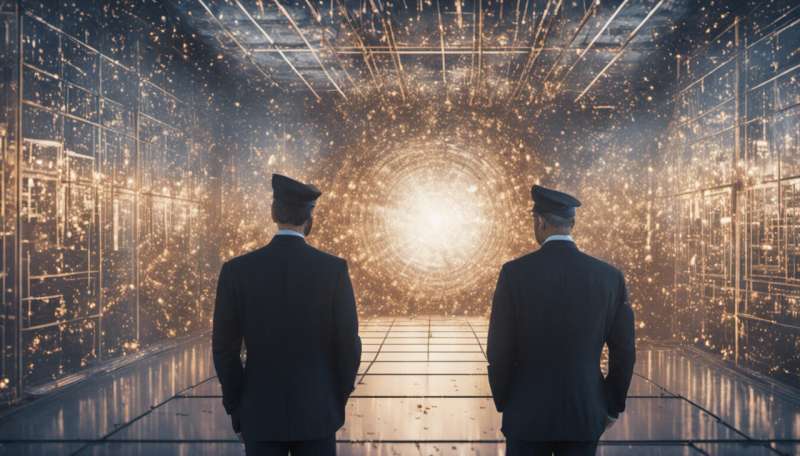COVID-19 misinformation: scientists create a 'psychological vaccine' to protect against fake news

Anti-vaccination groups are projected to dominate social media in the next decade if left unchallenged. To counter their viral misinformation at a time when COVID-19 vaccines are being rolled out, our research team has produced a "psychological vaccine" that helps people detect and resist the lies and hoaxes they encounter online.
The World Health Organization (WHO) expressed concern about a global misinformation "infodemic" in February 2020, recognising that the COVID-19 pandemic would be fought both on the ground and on social media. That's because an effective vaccine roll out will rely on high vaccine confidence, and viral misinformation can adversely affect that confidence, leading to vaccine hesitancy.
We recently published a large study which found that higher belief in misinformation about the virus was consistently associated with a reduced willingness to get vaccinated. These findings were later reaffirmed in a subsequent study which found a significant relationship between disinformation campaigns and declining vaccination coverage.
The spread of false information about COVID-19 poses a serious risk to not only the success of vaccination campaigns but to public health in general. Our solution is to inoculate people against false information—and we've borrowed from the logic of real-life vaccines to inform our approach.
When looking for ways to mitigate misinformation, scientists are confronted with several challenges: first, rumours have been shown to spread faster, further and deeper in social networks than other news, making it difficult for corrections (such as fact-checks) to consistently reach the same number of people as the original misinformation.
Second, even when someone is exposed to a fact-check, research has shown that corrections are unlikely to entirely undo the damage done by misinformation—a phenomenon known as the "continued influence effect". In other words, approaches to combating misinformation "post-exposure" are probably insufficient.
Our work in recent years has therefore focused on how to prevent people from falling for misinformation in the first place, building on a framework from social psychology known as inoculation theory.
Mental resistance
Psychological inoculations are similar to medical vaccines. Exposing someone to a severely weakened dose of the "virus" (in this case misinformation) triggers the production of mental "antibodies", thus conferring psychological resistance against future unwanted persuasion attempts.
However, rather than only "vaccinating" people against individual examples of misinformation, we instead focus on the more general ways in which people are misled—manipulation techniques such as the use of excessively emotional language, the construction of conspiracy theories, and the false testimony of fake experts.
To do so, we developed a series of online games in which players learn how misinformation works from the inside by being encouraged to create their own fake news: Bad News (about misinformation in general), Harmony Square (about political misinformation) and Go Viral!, which is specifically about misinformation around COVID-19.
Research has shown that a powerful way to induce resistance to persuasion is to make people aware of their own vulnerabilities. In our games, players are forewarned about the dangers of fake news and encouraged to actively generate their own antibodies through gradual exposure to weakened examples of misinformation in a simulated social media environment.
When we assessed the success of these projects, we found that playing a misinformation game reduces the perceived reliability of misinformation (even if participants had never seen the misinformation before); increases people's confidence in their ability to assess the reliability of misinformation on their feed; and reduces their self-reported willingness to share misinformation with other people in their network. We also found that similar inoculation effects are conferred across cultures and languages.
We then looked at how long the games' inoculation effect lasted and found that people remained significantly better at spotting manipulation techniques in social media content for at least one week after playing our game Bad News. This "immunity" lasted up to three months when participants were assessed at regular intervals each week. We see these prompts as motivational "booster shots", topping up people's immunity to misinformation by staying engaged.
Herd Immunity
Of course, our work is not without its limitations. Although these games have been played over a million times around the world and have been shared by governments, the WHO, and the United Nations, not everyone is interested in playing an online game.
But the game itself functions as just one kind of "virtual needle". A global "vaccination programme" against misinformation will require a suite of different interventions. For example, we're working with Google's technology incubator "Jigsaw", and our colleague Professor Stephan Lewandowsky, to develop and test a series of short animated inoculation videos.
Like the game, these videos forewarn and administer a micro-dose of a manipulation technique, which primes the watcher to spot similar techniques in the information they subsequently consume online. We intend to publish our study on the efficacy of video vaccines later this year.
As the pandemic continues to wreak havoc worldwide, a successful vaccine rollout is of vital interest to the global community. Preventing the spread of misinformation about the virus and the vaccines that have been developed against it is a crucial component of this effort.
Although it is not possible to inoculate everyone against misinformation on a permanent basis, if enough people have gained a sufficient level of psychological immunity to misinformation, fake news won't have a chance to spread as far and as wide as it does currently. This will help arrest the alarming growth of anti-vaccination sentiment on the internet.
This article is republished from The Conversation under a Creative Commons license. Read the original article.![]()





















